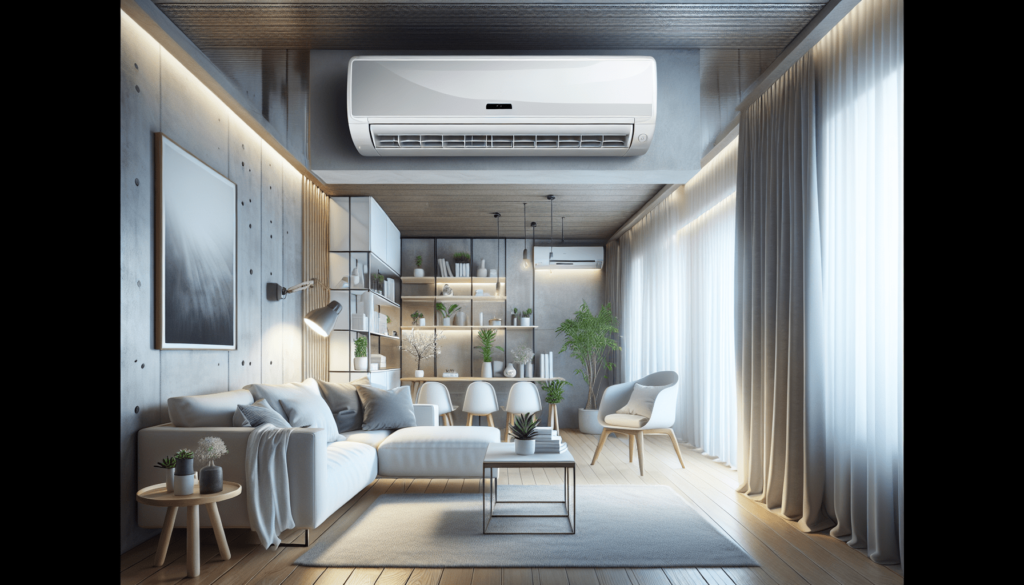Welcome to this comprehensive guide on whether a mini split AC is the right choice for your home! In this article, we will explore the benefits of mini split AC systems, discuss factors to consider when deciding if it’s the right fit for your home, and provide tips for installation and maintenance. By the end of this guide, you’ll have a better understanding of whether a mini split AC is the perfect cooling solution for your living space.
Is A Mini Split AC Right For Your Home? A Comprehensive Guide
Are you considering installing a mini split air conditioning system in your home? This comprehensive guide will help you determine if a mini split AC is the right choice for your cooling needs.
What is a Mini Split AC?
A mini split air conditioning system, also known as a ductless system, consists of an indoor unit and an outdoor unit connected by refrigerant lines. This type of system is ideal for homes without existing ductwork or for room additions where extending the existing ductwork is not practical.
Mini split ACs offer flexible cooling options for individual rooms or zones in your home, allowing you to control the temperature independently in each area.
Benefits of Mini Split AC
Mini split AC systems offer several advantages over traditional central air conditioning systems:
-
Energy Efficiency: Mini splits are more energy-efficient than central air systems because there is no ductwork, which can lead to energy loss.
-
Zoned Cooling: With mini split systems, you can set different temperatures in different rooms, making it more comfortable for everyone in your home.
-
Easy Installation: Since mini splits do not require ductwork, installation is easier and less invasive.
-
Quieter Operation: Mini split AC units are quieter than traditional window units.
-
Improved Air Quality: Ductless systems have multi-stage filtration that can improve indoor air quality by removing dust, allergens, and other particles.

Types of Mini Split AC Systems
There are different types of mini split AC systems to choose from, depending on your needs and preferences:
Single-Zone Mini Split System
A single-zone mini split system consists of one outdoor unit connected to one indoor unit. This type of system is ideal for cooling individual rooms or areas in your home.
Multi-Zone Mini Split System
A multi-zone mini split system consists of one outdoor unit connected to multiple indoor units. This type of system allows you to cool multiple rooms or zones in your home independently.
Ceiling Cassette Mini Split System
Ceiling cassette mini split systems are mounted in the ceiling, providing a discreet cooling solution for spaces with limited wall space.
Wall-Mounted Mini Split System
Wall-mounted mini split systems are the most common type of ductless system, mounted high on the wall to provide efficient cooling without taking up floor space.
Factors to Consider Before Installing a Mini Split AC
Before deciding to install a mini split AC system in your home, consider the following factors:
Size of Your Home
Consider the size of your home and the number of rooms or zones you want to cool. A single-zone system may be suitable for a smaller space, while a multi-zone system is better for larger homes.
Energy Efficiency
Look for ENERGY STAR certified mini split AC units to ensure energy efficiency and lower utility bills.
Installation Costs
While mini split systems are easier to install than traditional central air systems, installation costs can vary depending on the system’s size and complexity.
Maintenance Requirements
Mini split AC systems require regular maintenance to ensure optimal performance. Consider the maintenance requirements and costs before making a decision.

Installation Process of a Mini Split AC System
The installation process of a mini split AC system involves several steps:
Sizing and Placement
A professional HVAC contractor will determine the appropriate size and placement of the indoor and outdoor units to ensure efficient cooling.
Mounting
The indoor and outdoor units are mounted securely, either on the wall, ceiling, or on the ground, depending on the system type.
Refrigerant Line Installation
Refrigerant lines are connected between the indoor and outdoor units to transport refrigerant and cool the air.
Electrical Connections
Electrical connections are made to power the system and ensure proper operation.
Testing and Commissioning
The system is tested and commissioned to ensure it is functioning correctly and cooling the space effectively.
Maintenance Tips for Mini Split AC Systems
To ensure the longevity and efficient operation of your mini split AC system, follow these maintenance tips:
Clean or Replace Air Filters
Regularly clean or replace the air filters to maintain good indoor air quality and prevent the system from overworking.
Schedule Annual Maintenance
Schedule annual maintenance with a professional HVAC technician to inspect and tune up your mini split system.
Keep the Outdoor Unit Clear
Ensure that the outdoor unit is free from debris, vegetation, and other obstructions to maintain proper airflow.
Check for Leaks
Regularly inspect the refrigerant lines for leaks and have them repaired promptly if any are found.
Keep the Doors and Windows Closed
To maximize the efficiency of your mini split AC system, keep doors and windows closed when the system is running to prevent cool air from escaping.
Cost of Mini Split AC Systems
The cost of a mini split AC system can vary depending on factors such as the system’s size, type, and installation requirements. On average, expect to pay between $1,500 and $5,000 for a single-zone system and between $5,000 and $15,000 for a multi-zone system.
Conclusion
Is a mini split AC right for your home? Before making a decision, consider the benefits of mini split systems, the various types available, factors to consider, the installation process, maintenance tips, and the cost involved. With this comprehensive guide, you can make an informed decision on whether a mini split AC system is the right choice for your cooling needs.

